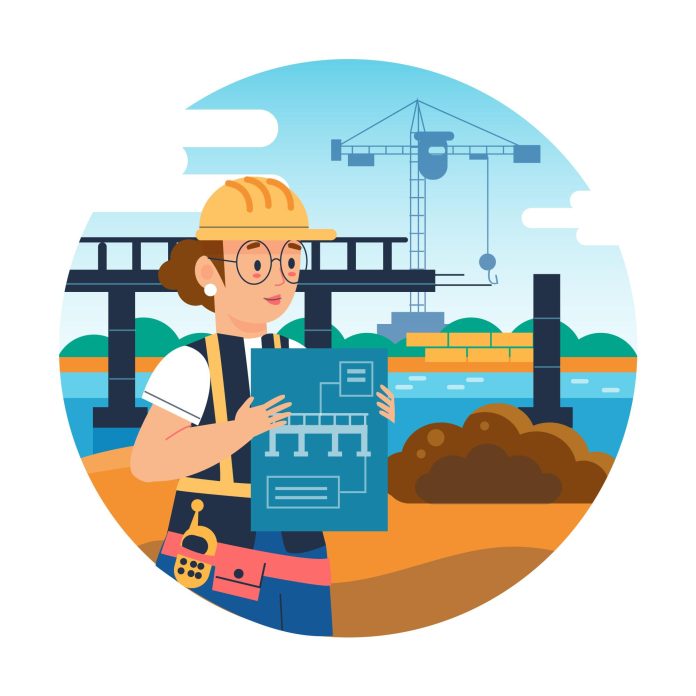The rapidly competitive environment of the HVAC sector is recognized widely. Managing relationships with customers, service requests, and field operations might be difficult. It can be difficult to assume and can be organized in different ways through CRM.
CRM Software proves to be an excellent tool for HVAC companies, providing a wide range of benefits that can improve their operations. CRM Software is a game-changer in the HVAC technology sector, from improving customer service to enhancing job scheduling and recording customer preferences and service purchase history.
Let us delve into advantages to better understand how CRM Software might benefit HVAC companies.
Streamlined Customer Data
Maintaining thorough customer information is one of the key advantages of CRM for HVAC companies. A CRM system aids in the organization and storage of crucial data like contact information, service history, and equipment specifications. Technicians can quickly access this data, expanding the level of service and eliminating the need for repetitive data entry.
Efficient Service Scheduling
Efficiently scheduling service appointments is a critical aspect of HVAC operations. A good CRM can assist in managing service appointments by matching the right technician with the right job based on skills, location, and availability. This results in reduced travel time, optimized resources, and quicker response times for customers.
Tracking of service histories
HVAC systems need routine upkeep and occasionally difficult repairs. By keeping track of service history, a CRM system enables technicians to learn previous problems, fixes, and warranty details quickly. This information facilitates faster which significantly benefits the customers and the overall business.
Inventory Control
CRM for HVAC companies relies on a well-kept inventory. Inventory management software can be combined with CRM systems to track the availability of equipment and spare parts. Because of this, there will be less downtime and need for service calls because personnel will have access to the proper parts and give relevant solutions to the customers.
Customer Interaction
Communication that is timely and relevant optimizes the customer experience and establishes trust. Customer happiness is dependent on good communication. CRM software improves customer communication by including various tools such as automated appointment reminders, follow-up emails, and feedback surveys.
Documentation and compliance
HVAC work is frequently considered with adherence to strict rules and paperwork requirements. CRM systems can aid in the creation, storage, and tracking of critical paperwork, ensuring that the organization adheres to industry requirements.
Improved Customer Experience
Ultimately, implementing the right CRM system leads to an improved overall customer experience. From the moment a service request is made to the completion of the job, a CRM system can ensure a smoother, more efficient, and more satisfactory process for customers.
Optimized Customer Service
CRM for HVAC Companies can access vital customer information at any time. The platform centralizes and stores all the essential customer data, which includes contact information, repair requests, and purchasing history, allowing HVAC service team specialists to provide personalized and quick service. HVAC specialists may access customer preferences and past service records while ensuring that they fulfill the customer’s unique requirements and expectations, whether it’s a routine maintenance check or an emergency repair. This form of personalized service not only increases customer satisfaction but also promotes long-term loyalty.
Efficient Job Scheduling
HVAC companies deal with a high volume of service requests and appointments daily. Manually juggling these schedules can be time-consuming and error-prone. CRM software solves these problems by providing a centralized scheduling mechanism. HVAC specialists may easily check their given jobs, prioritize them, and plan their routes. Real-time updates and notifications keep technicians informed of any changes or cancellations, minimizing downtime and increasing productivity.
Tracking Customer Preferences and Service History
Understanding and knowing the preferences of customers, as well as having access to their service history, is required for personalized and successful service delivery. HVAC Industries can use CRM software to track customer preferences such as preferred communication channels, preferred maintenance schedules, and special customer demands, allowing HVAC personnel to provide a more personalized approach during each service visit. This attention to detail not only improves customer happiness but also assists HVAC companies in developing stronger relationships with their customers.
Conclusion
With the HVAC industry’s ever-increasing needs and complexities. Investing in a CRM system is a prudent move toward maximizing efficiency and providing exceptional service. By streamlining communication with customers, optimizing processes, and improving overall performance, the appropriate CRM for HVAC companies can be a game changer.

